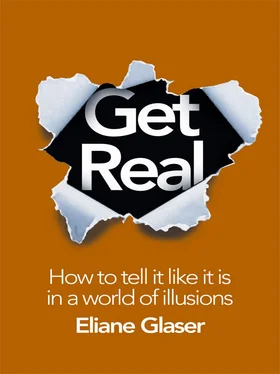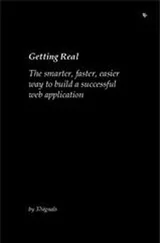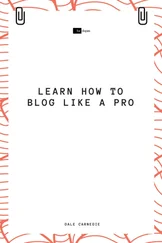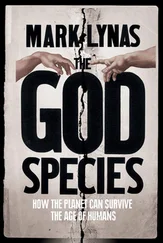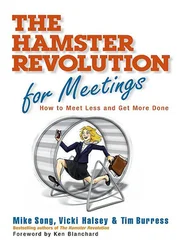Eliane Glaser
Get Real
How to Tell it Like it is in a World of Illusions

For Adam
Epigraph
A poet’s work is to name the unnameable, to point at frauds, to take sides, start arguments, shape the world, and stop it going to sleep.
SALMAN RUSHDIE, THE SATANIC VERSES
Cover
Title Page
Dedication
Epigraph
Introduction
1 Ideology’s Second Life
2 Soft Power
3 Token Gestures
4 Electric Dreams
5 Smokescreens
6 An Office Romance
7 The Age of Consent
8 Science Fiction
9 Baloney
10 Greenwash
Afterword
Further Reading
Searchable Terms
Acknowledgements
Copyright
About the Publisher
It’s a sunny Sunday morning and I’m popping out to the corner shop with my little son in his pushchair. We are both in a carefree mood. But then I pass a BP petrol station, and I can’t help noticing that it’s bright green. How strange, I think to myself, to see a purveyor of pollution decked out in such an eco-friendly shade. Once inside the shop, I scan the shelves for a nice healthy treat. I’m tempted by tubs of Rachel’s Organic yoghurt, but then remember that they’re made by Dean Foods, the largest dairy company in America; and by Seeds of Change chocolate bars, inconveniently owned by Mars. You’d never know that, I note rather irritably, from the naturalistic, folksy packaging. And as I look for a newspaper to buy I see that the Times front page is sporting the headline ‘Cameron to Give Power to the People’. Is he now, I say to my slightly startled son. That’s a strange way to dress up public-spending cuts. My son’s eyes widen. He’s not yet used to my impromptu political rants. But I have always looked at the world like this. And I’ve always felt a bit critical, as though I was giving the world too much of a hard time. But the way things are going now I feel worryingly justified.
The world I see around me is one in which oil giants advertise their environmental credentials, mass-produced brands are marketed as artisanal and ethical, and a multi-millionaire Old Etonian proclaims the Conservatives the party of the poor. A world in which TV talent shows stage spectacles of against-the-odds success while rates of social mobility drop to pre-1970s depths, Hugh Fearnley-Whittingstall catches wild sea bass while sales of ready meals reach an all-time high, and plus-size models are celebrated by the world’s media while rates of anorexia soar. We have sleepwalked into a world where nothing is as it seems; where reality, in fact, is the very opposite of appearance.
I keep hearing proclamations that we have entered a revolutionary era: of grassroots people power, a new politics, transparency and technological transformation. And of course, in some ways, our world has changed for the better in recent years. There are plenty of grounds for optimism. Across the Arab world, people of all ages and backgrounds have taken to the streets to fight oppressive regimes. WikiLeaks has exposed the machinations of global political elites. Phone-hacking revelations have put a media multinational on the back foot. And yet at the same time, those brave new world fanfares simply do not ring true.
Is it just me, or does it seem as if new remedies are everywhere, but they’re often symptoms of a deeper malady? That despite our obsession with reality, we’re also in the grip of a massive sleight of hand? That we know there is something wrong, but we seem to have lost the intellectual language we need in order to articulate what’s happening?
So many game-changing moments turn out to be fleeting or merely symbolic. Just as people are challenging the power of elites, those elites are speaking the language of people power in order to make even greater advances. World-altering progress is becoming increasingly hard to distinguish from the rhetoric of marketing. Like the Vodafone ad ‘Our Power’, that claimed credit for the Arab Spring, when in fact the company had caved in to Egyptian government demands to shut down its network during the protests there. Vodafone was roundly criticised and denied it had commissioned the ad; but this kind of thing goes unremarked all the time.
I was checking my email recently when Windows Explorer popped up. There was the familiar list of my directories and programs, but several of them were flashing up with those dreaded red crosses. My computer was infected with a virus. The screen was instructing me to download a virus protection program that would solve the problem. But when I Googled the name of the program, I found that it was itself a virus, something called spyware. It had snuck into my computer and replicated my Windows Explorer page; and downloading the program would make things even worse. I went searching on the internet for a genuine anti-spyware program, but how could I be sure that any of those weren’t themselves viruses? Since nobody knows how computers work any more, none of my friends could help. It was like being in a hall of mirrors from which there was no escape: the solution had turned out to be the problem in disguise. I recognised this sensation from somewhere, but I couldn’t quite put my finger on it. Until I realised that I recognised it from the whole of modern life.
Right now the potential for change seems overwhelming, and yet real change has also never felt less possible. At a time of such trumpeted progress, it feels as if genuine advances have slipped out of our grasp. Despite all the momentous events of recent years – the rise of the internet, the near-collapse of finance capitalism, the Arab Spring – I do not have a sense of radical empowerment. In fact, I am puzzled, and increasingly angry; not just at the injustice of it all, but at the sense that something huge is being swept under the carpet. Liberal commentators are cheerleading the new revolution. But where I’m standing that revolution, as Gavin and Stacey would have it, is not occurring. We seem to be living our lives under the spell of a mass cognitive dissonance, and everyday existence has taken on a frustratingly unreal texture. We need to get real. And that is what made me want to write this book.
I aim to provide a spotter’s guide to the delusions we live by – from L’Oréal advertisements to the Obama effect; from the natural childbirth movement to iPhone apps. As the philosopher John Gray has noted, ‘There are very few books that really help us understand the present.’ This book is an attempt to do just that. I believe that it’s time to hold up for scrutiny the increasing gap between the appearance and the reality of our lives, and to demonstrate why it really matters, right now. I believe that we can be optimistic about progress in the world, but for me that optimism lies in critique. Because how can we solve problems if we deny their existence; if we disguise them by highlighting sparkly exceptions? How can we improve the world if we’re constantly buying into fake solutions, confected by the marketing operations of powerful elites, determined to preserve their status? Our assumptions of choice, opportunity and accessible information lead us to consent, over and over again, to the illusions we are sold. But it doesn’t have to be that way.
So what has turned our world upside down, replacing reality with topsy-turvy mirage? In part I blame the spin, PR, marketing and rhetoric that has found its way into every nook and cranny of our lives. But we are familiar with that story, and in a sense it hides an even deeper deception. Because this is an age of apparent authenticity and realism, embedded reporters and user-generated content, HD, 3D and unbranded ‘community personality’ Starbucks cafés. Fake authenticity makes delusions doubly difficult to spot. And this is also an age in which we have swallowed the corporate line that the consumer is king, that we are savvy, self-aware and self-determining as never before. The notion that we may be duped and self-deluded, that we may be in the grip of false consciousness, is nowadays deeply taboo. But as I’ll be arguing in this book, that just leaves us even more vulnerable to deception, ‘nudge’ politics and soft power, forms of manipulation that are on the rise and do not necessarily have our best interests at heart. We’re caught in a trap, as the King would have it. And we need suspicious minds.
Читать дальше
